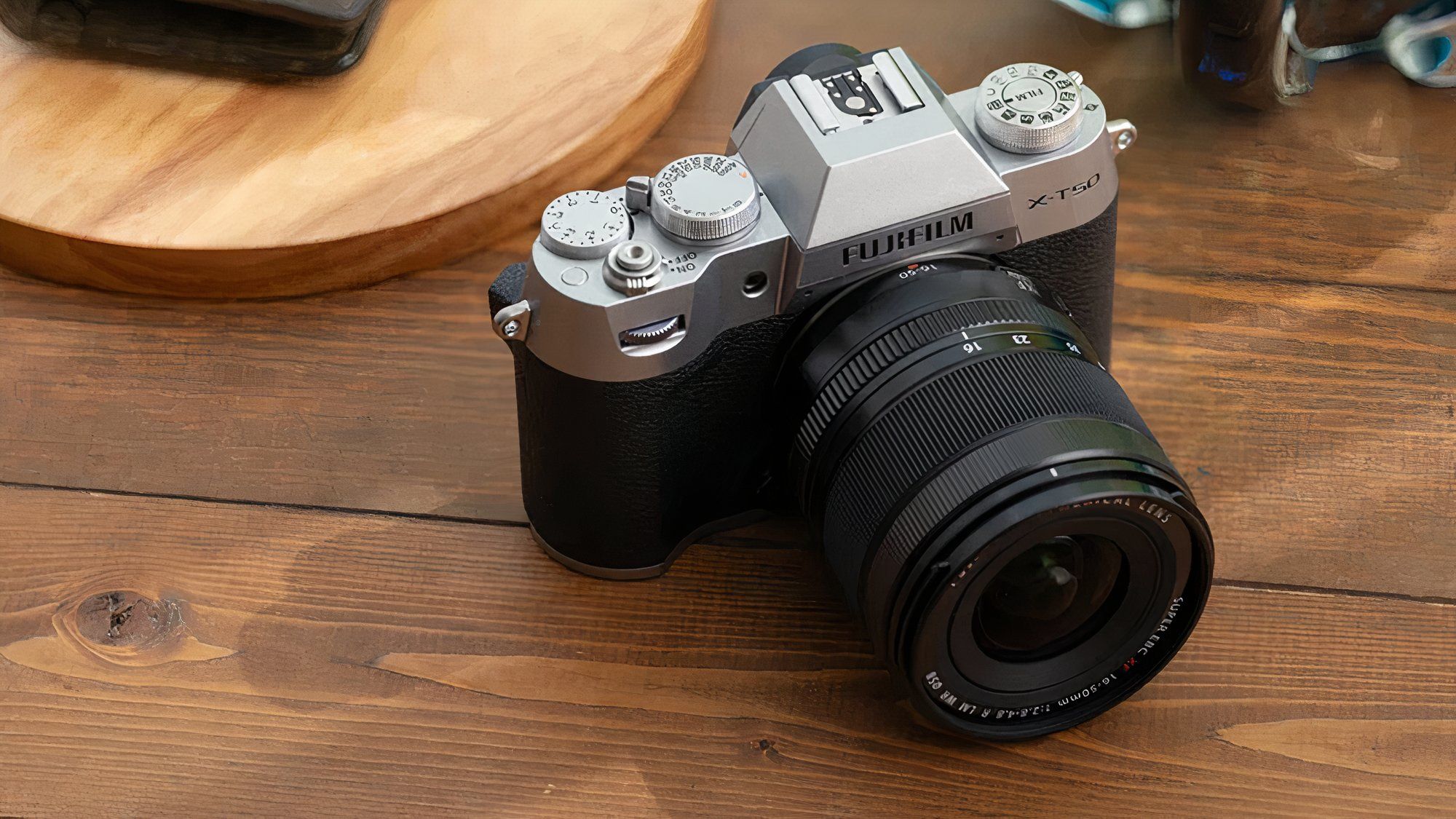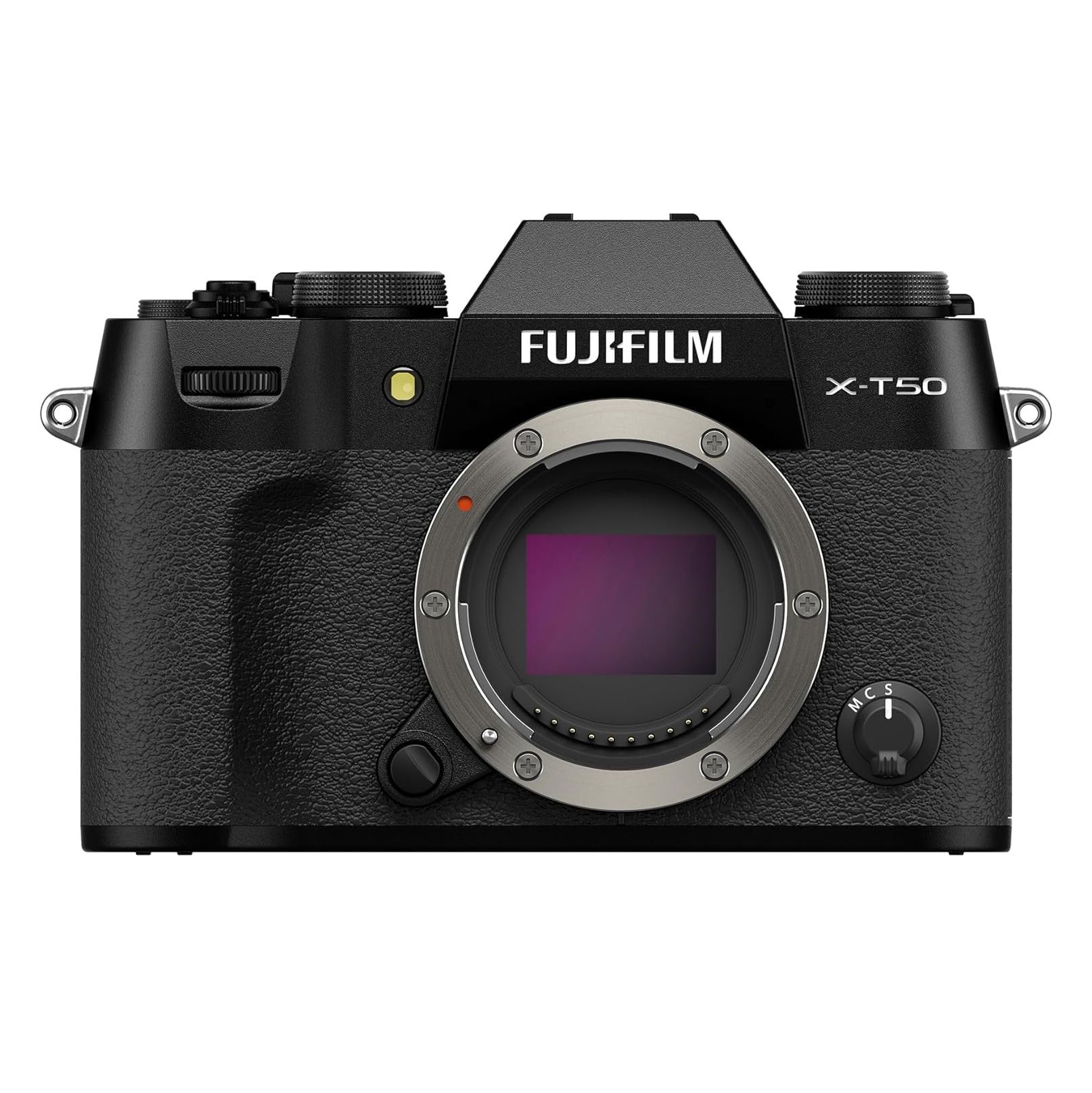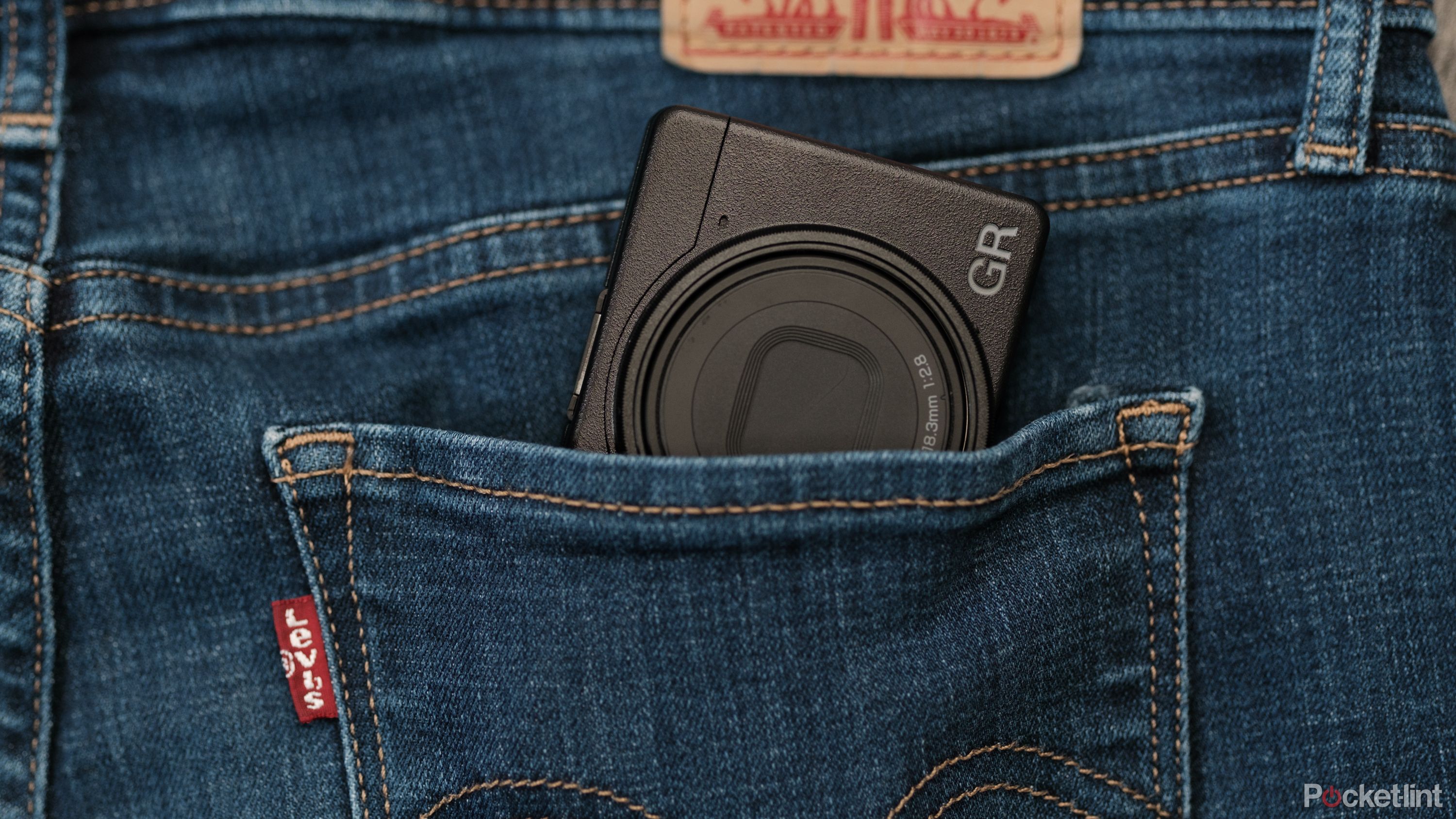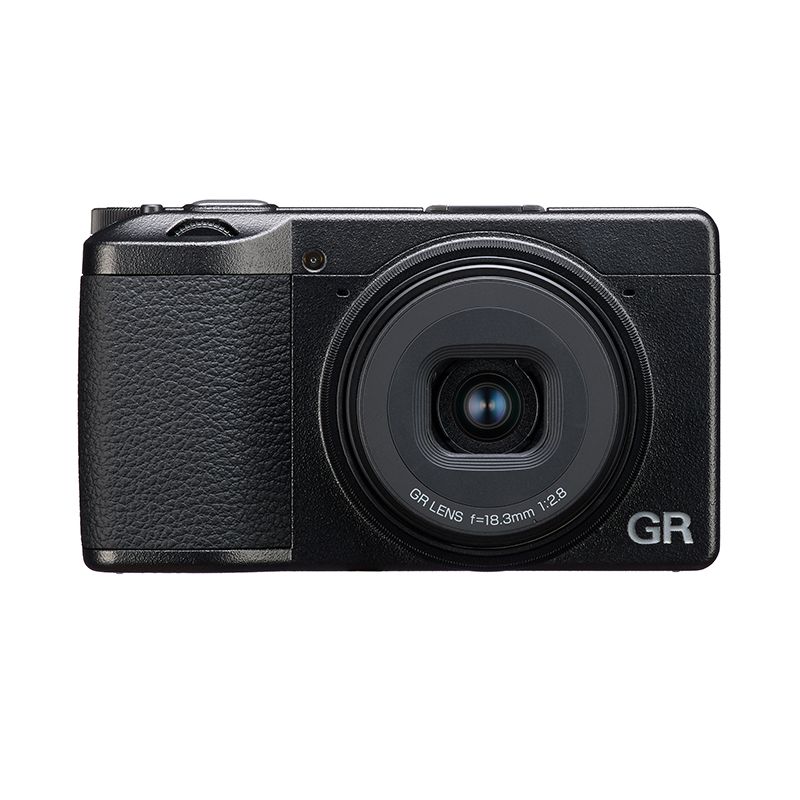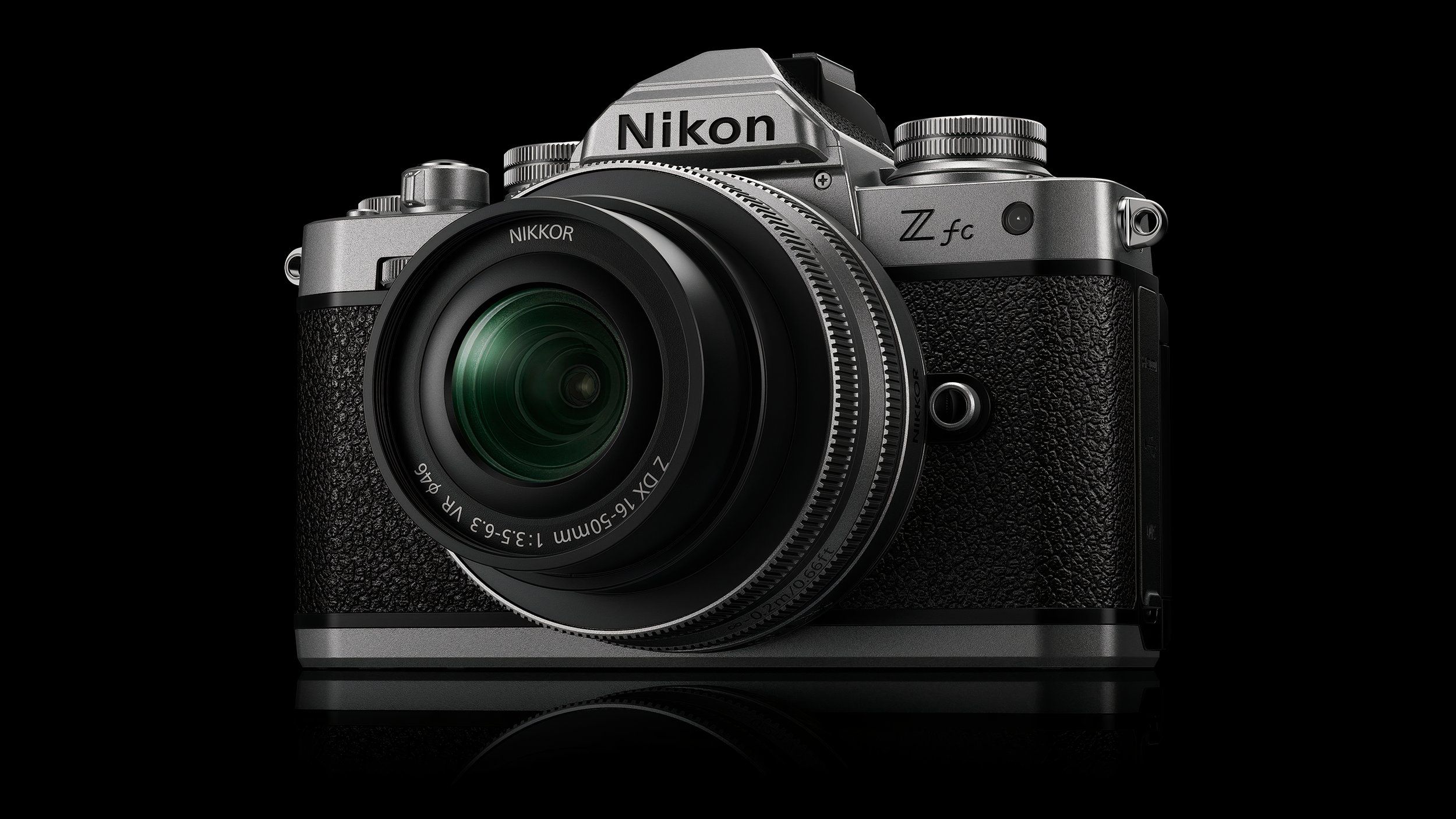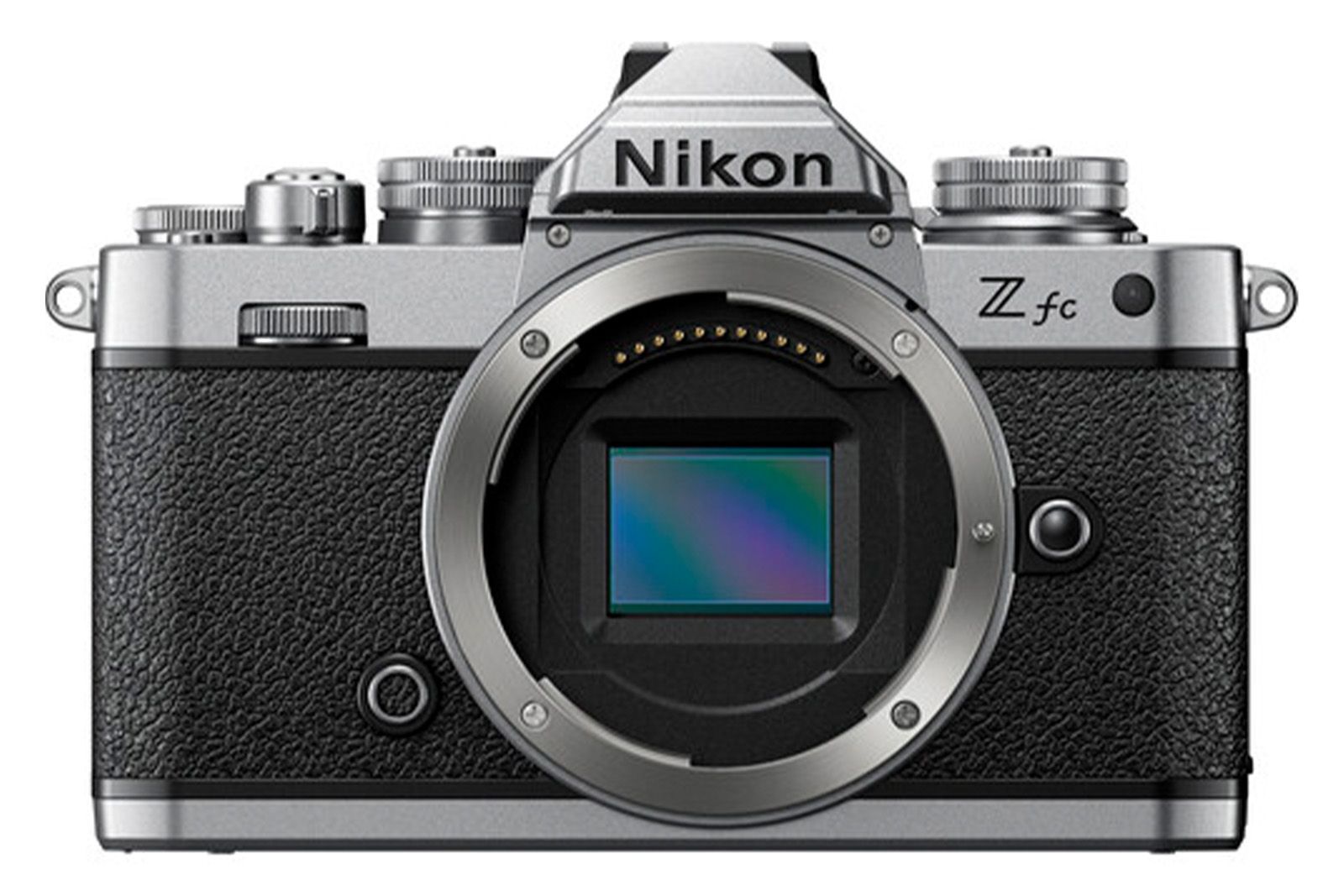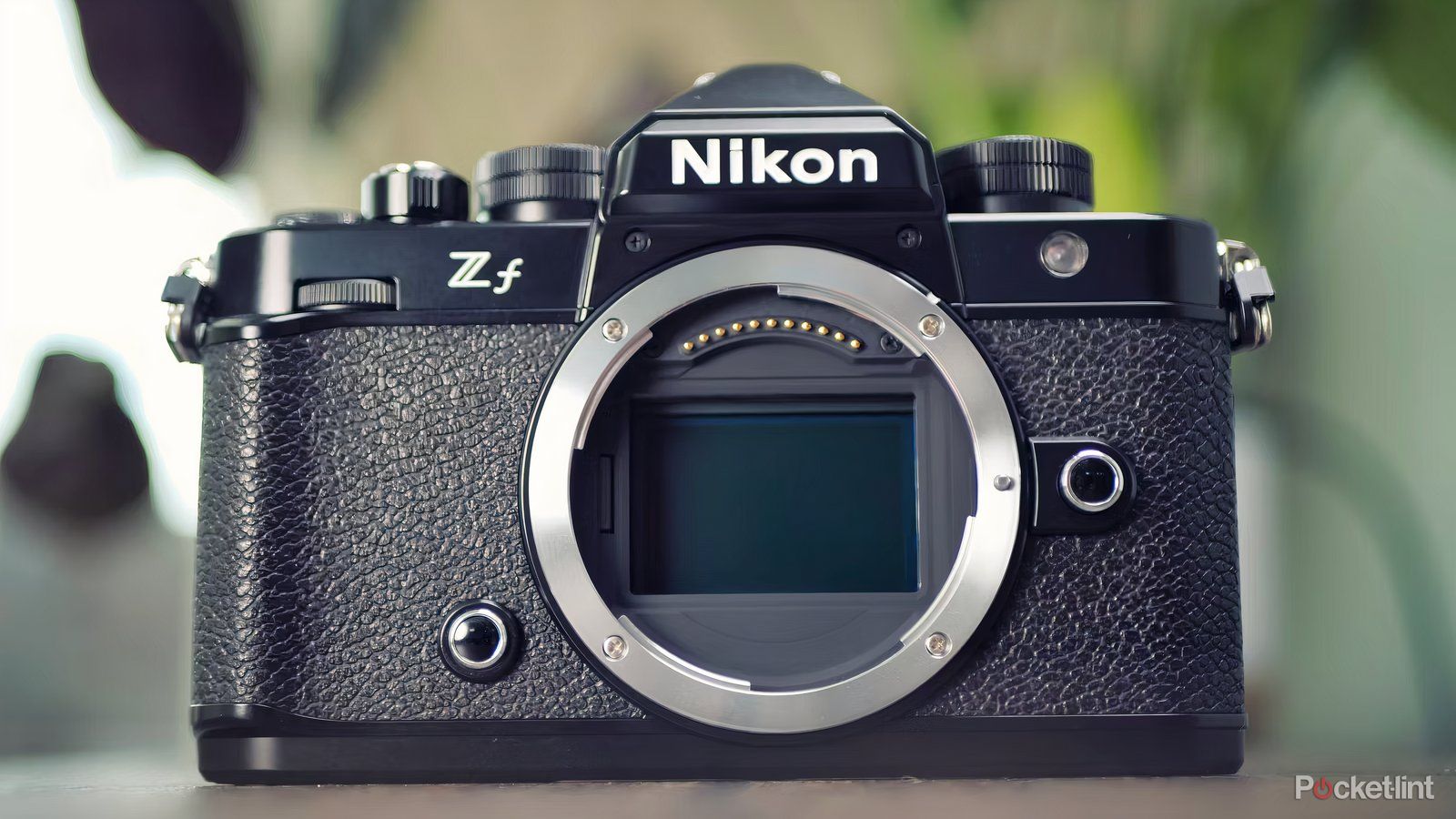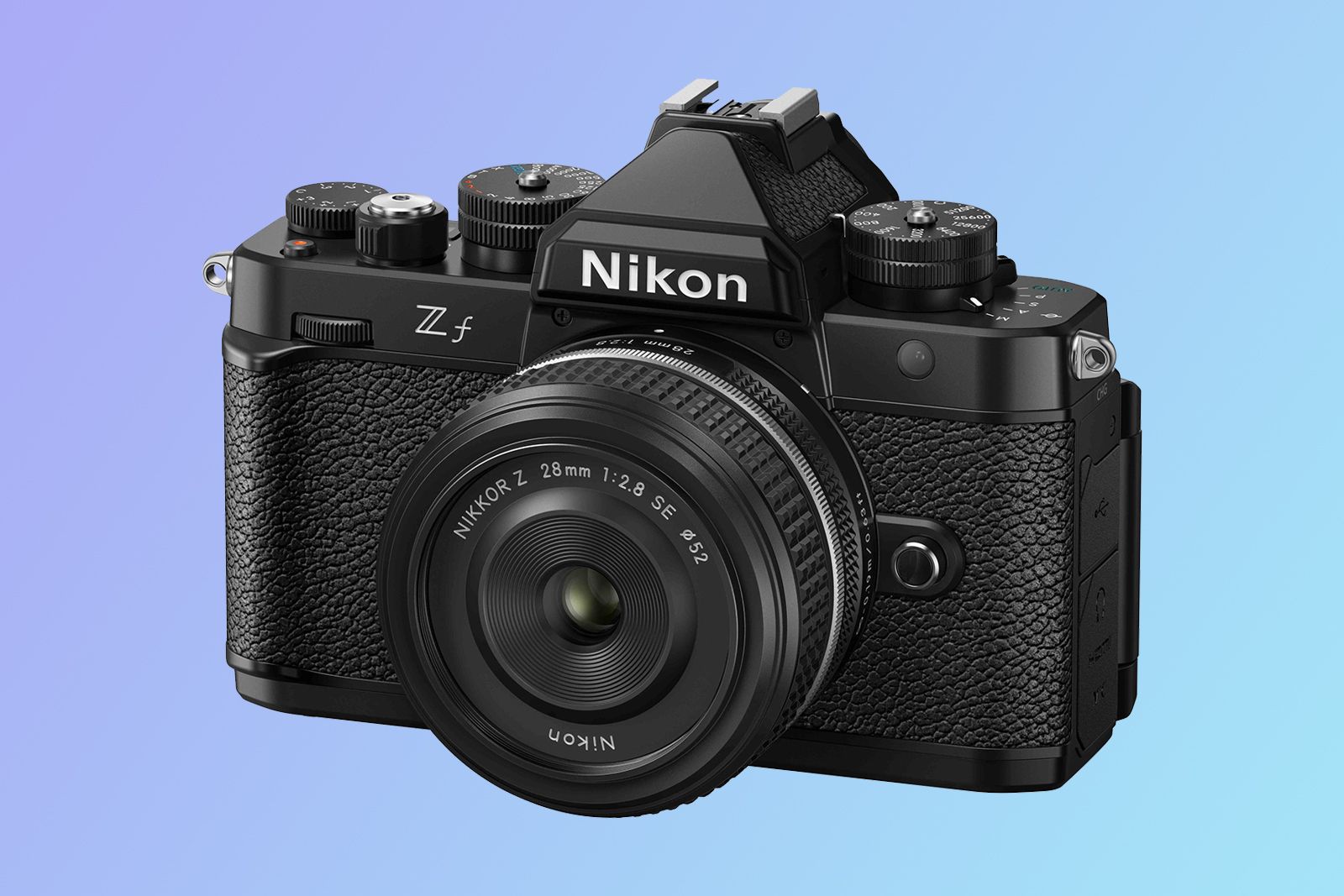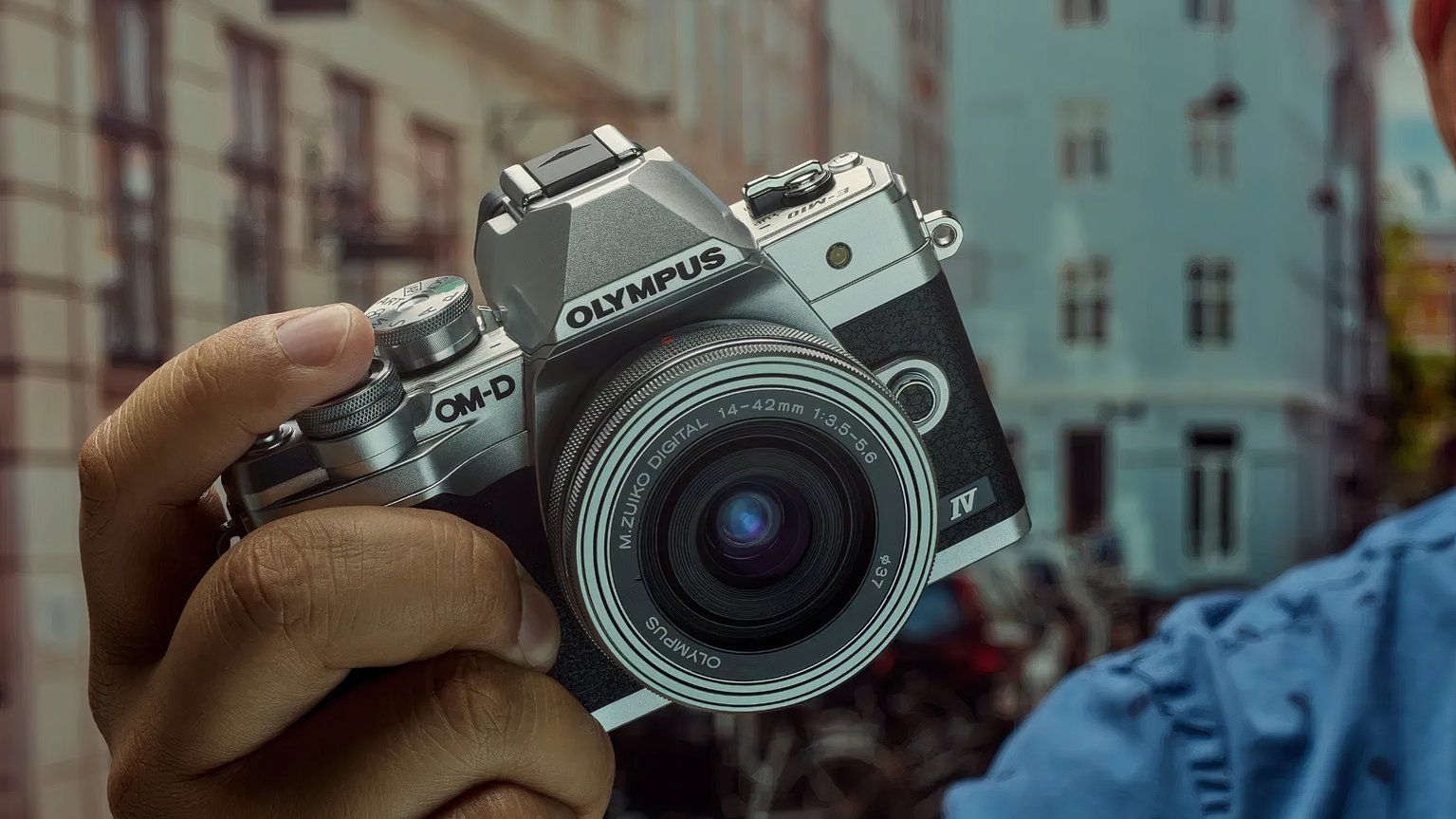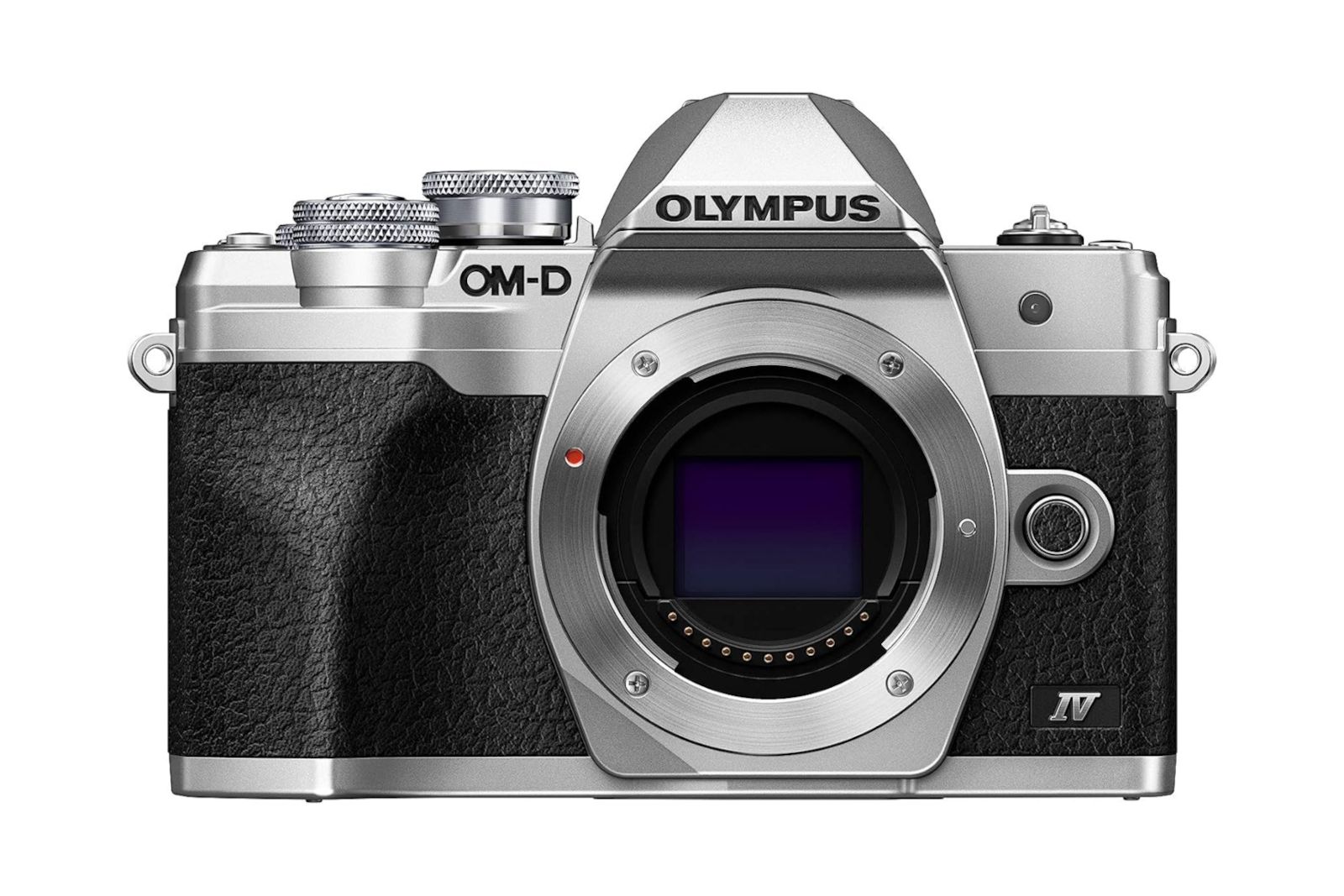Key Takeaways
- Fujifilm X100VI is hard to find and expensive due to its popularity and high resale prices.
- Fujifilm X-T50 is a close alternative with identical quality, versatility, and lower cost.
Fujifilm’s X100 compact camera series has maintained a small but loyal fan base for much of its history. That is until the Fujifilm X100V went viral on TikTok. That model quickly sold out, and its successor, the Fujifilm X100VI, has been just as hard to find in-store and online. When you add scalpers to the mix, the X100VI has become unobtainable for some. While Fujifilm’s list price is $1,599, already $200 more than the previous model, if you do manage to find the new camera in stock, you’ll probably see an even higher price tag. As of this writing, the X100VI is listed at $2,595 on Amazon. That’s an exorbitant price to pay for a camera that can’t even swap lenses.
If you’ve had your eye on an X100 camera but don’t want to pay more than list price or wait months for availability, here are five alternatives that offer retro charm, a portable design, and excellent image quality.
5 Fujifilm X-T50 with the Fujinon XF 27mm f2.8 R WR
A compact mirrorless with plenty of charm and great image quality
Fujifilm
Arguably, the closest camera to the X100VI is the Fujifilm X-T50. It has the same 40.2-megapixel X-Trans sensor and X-Processor 5 as its fixed-lens sibling. That means image quality will be nearly identical, including Fujifilm’s famous film-like color profiles. But the X-T50 even has a better stabilization system, with seven stops instead of six and a faster mechanical shutter burst at eight frames per second instead of six.
The difference? The Fujifilm X-T50 is an interchangeable lens camera, not a compact point-and-shoot. But, if you pair it with a compact lens, the size difference is minimal. Add the Fujinon XF 27mm f2.89 R WR, which is similar to the 23mm f2.0 lens built into the X100VI, and the X-T50 is only one gram heavier than the X100VI. Plus, with the X-T50, you can add lenses later on, making the mirrorless far more versatile than the X100VI.
The X-T50’s list price is $1,399, and the lens costs $459, for a total of $1,858. That’s slightly more than the X100VI’s original list price but less than what the camera sells for on the second-hand market. For a more affordable option, consider the older X-T30 II paired with the same lens.
4 Ricoh GR III HDF
An even smaller compact camera than the X100VI
If the X100VI appeals to you solely for that compact body, consider the Ricoh GR III HDF. The GR III is a true compact and comes in a much smaller body than the X100VI. However, the sleek black body lacks the retro charm and dials that the X100VI offers.
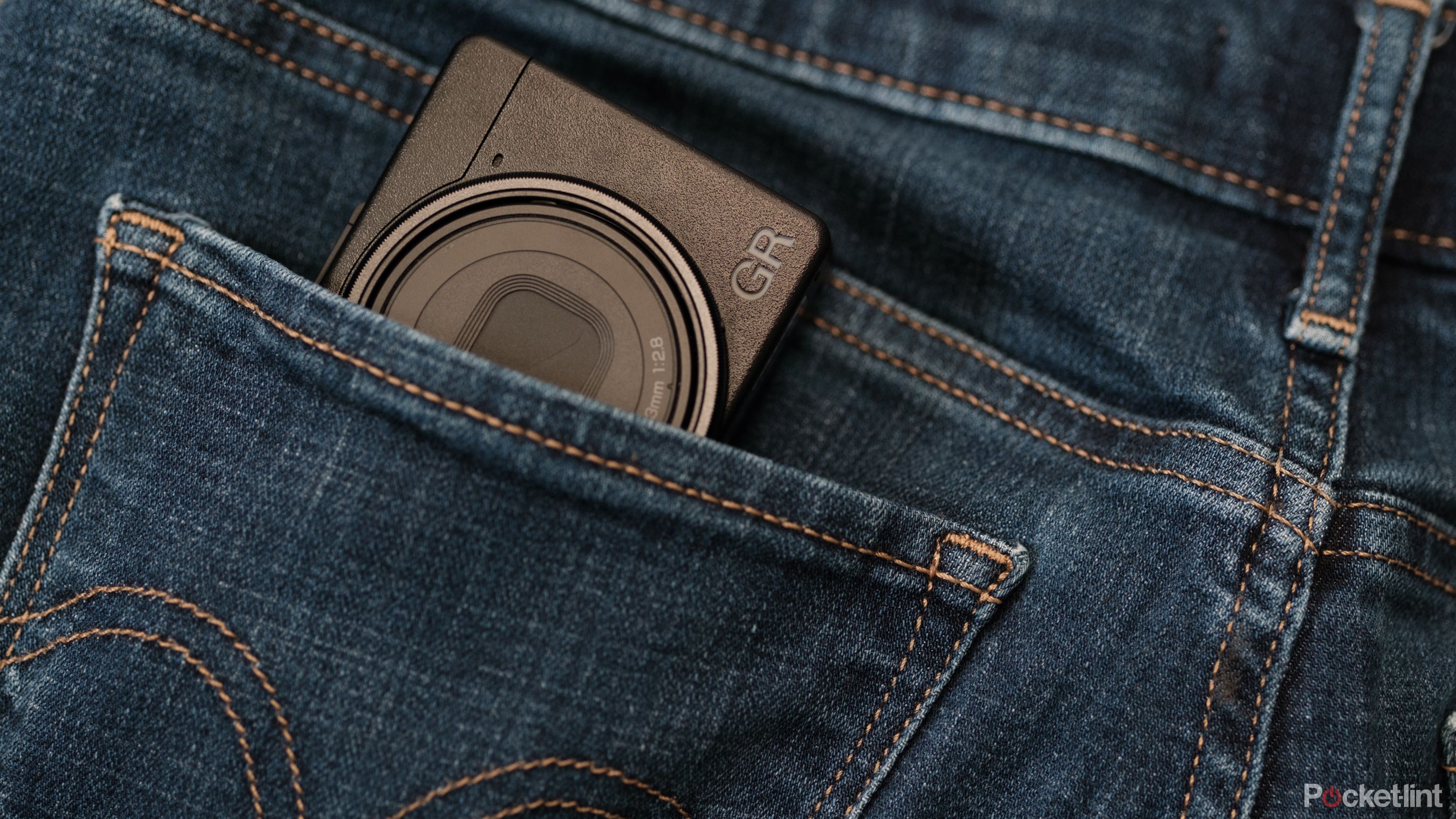
Read our review
The Ricoh GR III HDF hides a trick for capturing cinematic photos, but I think it needs more
The Ricoh GR III HDF adds a neat new filter — but not much else.
The Ricoh GR III has other trade-offs for that smaller body as well. It still has a large APS-C sensor, but it captures lower 20-megapixel photos. The GR III is also considerably slower, with a burst speed of only four frames per second where the X100VI can hit 13 fps with its electronic shutter.
Besides the size, the GR III also wins out in macro capabilities, with the built-in lens able to shoot much closer than the X100VI’s lens.
3 Nikon Z fc
An affordable Nikon mirrorless oozing retro charm
Nikon
While Fujifilm has been making cameras that offer retro charm for years, Nikon only recently attempted to create a digital camera with dials that feel like those found on an old film camera. Like the X-T50, the Nikon Z fc is an interchangeable lens camera, not a fixed-lens compact like the X100VI. However, the Z fc is a classically styled camera with those beloved top dials, and even with a 40mm kit lens. It’s priced at about $1,200, well under the list price of the X100VI.
The Nikon Z fc has an APS-C sensor, like the X100VI. However, the resolution is lower at about 20 megapixels. As a more entry-level camera, the Z fc lacks a few other features. Its top shutter speed, for example, is 1/4000 and performance can be a bit lagging. The body also isn’t weather-sealed — though, in its defense, the weather-sealing on the X100VI is only partial. Surprisingly, the Z fc’s body is lighter than that of the X100VI. If you pair it with the 28mm pancake lens kit, the combo is only around 20 grams heavier than the compact camera.
2 Nikon Z f with 40mm lens kit
A full frame, retro-inspired mirrorless with a pancake lens
While the Z fc fits the bill for classic design and portability, it’s a slower camera without weather sealing. The Nikon Z f is a classically-inspired mirrorless camera that corrects those issues, but with a larger sensor, it comes in at a higher price point and heavier weight.
Like the Fujifilm X-T50, the Z f is an interchangeable lens camera, not a compact like the X100VI. The Nikon Z f is considerably larger than the X-T50, but it offers an even larger full-frame sensor. The resolution is lower at 24.5 megapixels, but the larger sensor gathers more light and creates more background blur.
The Zf can be picked up paired with a 40mm kit lens for $2,236.95. That’s more than the list price of the X100VI, but less than the compact is going for on eBay and you get a larger sensor and the ability to swap lenses.
1 OM System Olympus OM-D E-M10 Mark IV with 14-42mm f3.5-5.6 II R kit lens
A highly portable, beginner-friendly combo for under $1,000
OM System
If you want the retro charm and portability of the X100VI for considerably less cash, consider the Olympus OM-D E-M10 Mark IV with 14-42mm kit lens. While this mirrorless camera is getting old, the retro charm, portability, and low price will undoubtably win over many photographers.
The E-M10 Mark IV is a 20.3-megapixel micro four thirds camera, which means the sensor inside is actually smaller than the one found inside the X100VI. However, the smaller sensor means the E-M10 is more compact and affordable than Fufjifilm’s camera. The kit lens also offers more versatility, as it has zoom where the X100VI does not.
While the E-M10 Mark IV still has that retro charm, it’s a more beginner-friendly camera, as those top dials feature an auto mode rather than shutter and ISO settings. Olympus’ color profiles also don’t hit quite the same as Fujifilm’s.
Trending Products
